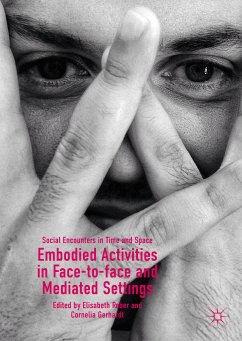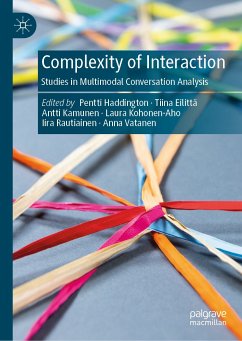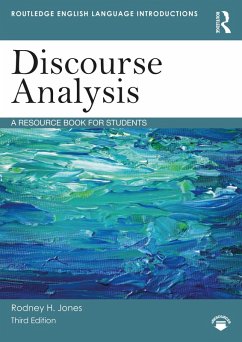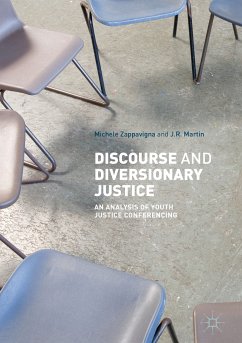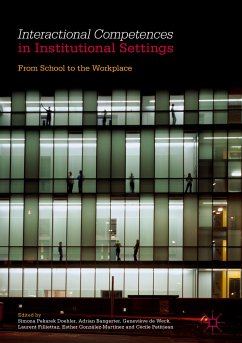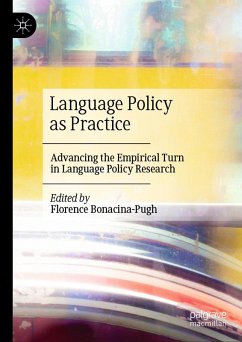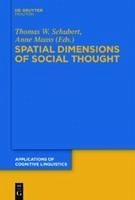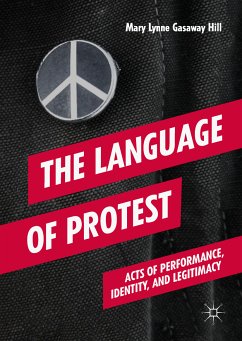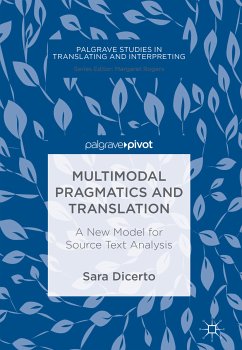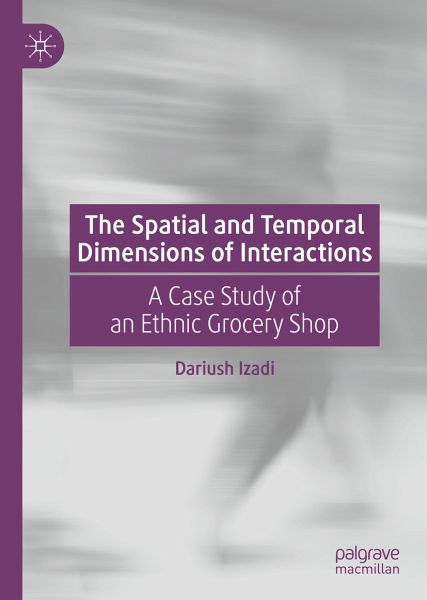
The Spatial and Temporal Dimensions of Interactions (eBook, PDF)
A Case Study of an Ethnic Grocery Shop
Versandkostenfrei!
Sofort per Download lieferbar
48,95 €
inkl. MwSt.
Weitere Ausgaben:

PAYBACK Punkte
24 °P sammeln!
"This book provides a significant contribution to the discursive analysis of service encounters. It demonstrates, in a very elegant way and based on a solid empirical investigation, how mediated discourse analysis may be enacted to describe and understand the social and cultural practices associated with space, time, ethnicity and identity construction. A must-read for researchers and practitioners interested in language use in professional contexts."-- Laurent Filliettaz, University of Geneva, Switzerland"This book contains one of the most thorough and productive applications of the theoretic...
"This book provides a significant contribution to the discursive analysis of service encounters. It demonstrates, in a very elegant way and based on a solid empirical investigation, how mediated discourse analysis may be enacted to describe and understand the social and cultural practices associated with space, time, ethnicity and identity construction. A must-read for researchers and practitioners interested in language use in professional contexts."
-- Laurent Filliettaz, University of Geneva, Switzerland
"This book contains one of the most thorough and productive applications of the theoretical and analytical apparatus of mediated discourse analysis I have come across, demonstrating how the moment-by-moment ways that people appropriate discourse to perform mundane daily activities such as shopping contribute to the broader maintenance of social identities and communities. The analysis is meticulously undertaken and communicated in clear, elegant prose. This book will be of interest to anyone working in the field of discourse studies."
-- Rodney Jones, University of Reading, UK
This book investigates the social practices of service encounters in the context of a typical Persian shop in Sydney. Although by nature goal-oriented speech events, the book posits that service encounters are not simply limited to achieving business transactions, but that they incorporate a range of social and discursive practices. Analysing ethnographic data using the frameworks of Mediated and Multimodal Discourse Analysis, the author explores how people use everyday activities to enact social and cultural identities, construct linguistic authenticity, and maintain strong economic ties to the community. It will be of interest to scholars and students of the sociolinguistics of ethnic/ minority sites and urban spaces.
Dariush Izadi holds a PhD in Sociolinguistics and teaches Language and Linguistics Research Methods, Sociolinguistics, Discourse Analysis and TESOL Units at Western Sydney University, Australia. In his work, he applies mediated discourse and nexus analysis to investigate practices and methods through which participants accomplish their actions in social settings.
Dieser Download kann aus rechtlichen Gründen nur mit Rechnungsadresse in A, B, BG, CY, CZ, D, DK, EW, E, FIN, F, GR, HR, H, IRL, I, LT, L, LR, M, NL, PL, P, R, S, SLO, SK ausgeliefert werden.



